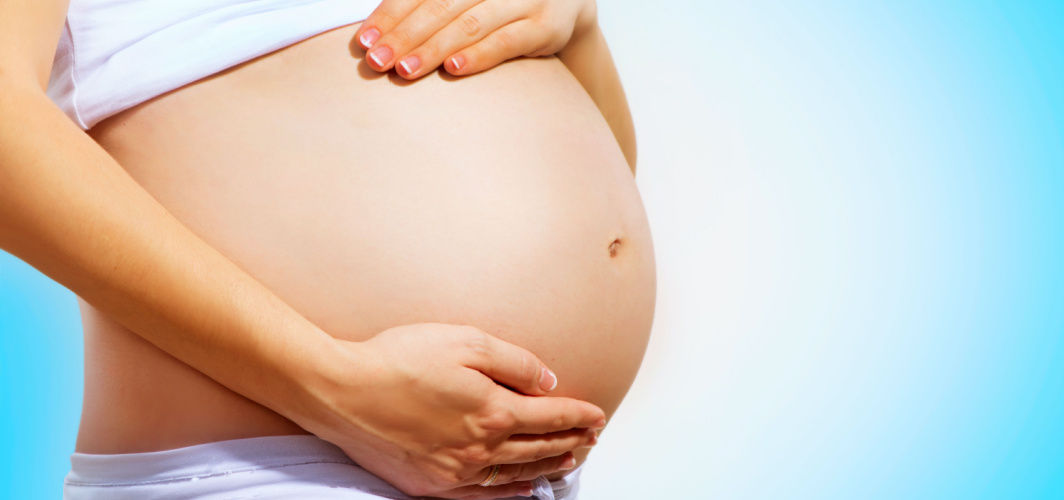Women's Wellness
5 Myths About Pregnancy You Must Stop Believing Right Away!
4 min read
By Apollo 24|7, Published on - 19 April 2023, Updated on - 11 February 2025
Share this article
0
0 like

Pregnancy is a significant phase in a woman's life, which brings along several physical and emotional changes. With all these changes happening, it can be difficult for women to make decisions on what is right for them and their unborn child. Moreover, the myths associated with pregnancy add up to their anxiety. Hence, it is important to bust such myths to help expecting mothers make informed decisions. Let’s debunk 5 such myths and provide mothers with the right knowledge to have a healthy and safe pregnancy.
Myth 1: You shouldn’t exercise during pregnancy.
Fact: Regular exercise during pregnancy has numerous benefits for both the mother and the baby. However, it is important to make the necessary modifications and consult with a doctor before starting any fitness program. Light-to-moderate strength training and aerobic exercises are generally safe for most pregnant women as long as there are no health issues or complications. Exercise can help expectant mothers stay in shape, reduce pain, and prepare for childbirth. Seeking advice from a healthcare provider regarding the frequency, intensity, and duration of exercise is highly recommended. Additionally, healthcare providers can offer tips on safe exercise routines for pregnant women to help ensure a healthy pregnancy.

Myth 2: You should avoid sex when pregnant.
Fact: Engaging in sexual activity during a healthy pregnancy does not pose any risks. Studies have concluded that sex during pregnancy does not increase the chances of preterm labour in low-risk pregnancies. However, there are some rare cases where a healthcare provider may advise against it, such as in instances of heavy bleeding or ruptured membranes. Women with cervical insufficiency, placental problems, or other factors that increase the likelihood of preterm labour should also consult with their doctor before engaging in sexual activity. It's always best to discuss any concerns with a healthcare provider to ensure the safety and well-being of yourself and your baby.
Recommended read : Natural Ways to Induce Labour
Myth 3: You should eat for two during pregnancy.
Fact: It is important for pregnant women to maintain a balanced and healthy diet, without overeating, to ensure the well-being of both them and their foetus. While some increase in caloric intake may be necessary, it should be gradual and nutrient-rich. During the first trimester, no additional calories are needed, but in the second and third trimesters, experts recommend an additional 340 and 450 calories per day, respectively. It is recommended that women continue with their regular diet but make sure to include nutrient-rich foods to support the health of their growing baby. Overeating, especially with a diet high in empty calories, can be harmful to both the mother and the foetus as it can result in gestational diabetes and preeclampsia.
Myth 4: You should not travel when pregnant.
Fact: It's generally safe to travel by car or aeroplane during pregnancy but there are some things to keep in mind. The best time to travel is usually during the second trimester when you're less likely to experience morning sickness and aren't too large to have trouble moving around comfortably. However, long drives should be limited to no more than 5-6 hours. Many airlines have restrictions on travel during the later weeks of pregnancy. Regardless of the mode of transportation, it's important to take regular breaks to walk and stretch every couple of hours. Staying hydrated is also crucial.
Myth 5: Any bleeding during the first trimester of pregnancy is a sign of a miscarriage.
Fact: Experiencing vaginal bleeding during pregnancy can be a worrying experience for expectant mothers but it's important to know that it's not always an indication of a miscarriage. In fact, up to 40% of women may experience some form of vaginal bleeding during the first trimester. However, any instances of bleeding during pregnancy should be discussed with your OB-GYN to determine the cause.
Numerous pregnancy myths exist, out of which some can be harmful. It is vital for a woman to seek advice from a medical professional before making any significant alterations to her diet, healthcare, or lifestyle during pregnancy. If you have any questions,
Also read: Yoga for Relieving Constipation During Pregnancy
Consult Apollo's Expert Gynaecologist
Medically reviewed by Dr Sonia Bhatt.
Leave Comment
Recommended for you

Women's Wellness
Quit These Habits If You Wish To Conceive Easily
Healthy women have a higher chance of getting pregnant and giving birth to a healthy baby. Notably, habits like smoking, drinking alcohol and consuming too much caffeine can reduce your chances of becoming pregnant.

Women's Wellness
5 Micronutrients Every Woman Must Add To Their Diet Immediately
Micronutrients such as iron, folate, and vitamin D are extremely important for women to maintain their health. Read to know more.

Women's Wellness
7 Facts About Menopause You Probably Didn't Know!
Menopause is a biological process that marks the end of a woman's reproductive years, leading to various physical and emotional symptoms. While menopause is a natural phenomenon, there are still many facts and nuances about it that are not widely known.
Subscribe
Sign up for our free Health Library Daily Newsletter
Get doctor-approved health tips, news, and more.
Recommended for you

Women's Wellness
Quit These Habits If You Wish To Conceive Easily
Healthy women have a higher chance of getting pregnant and giving birth to a healthy baby. Notably, habits like smoking, drinking alcohol and consuming too much caffeine can reduce your chances of becoming pregnant.

Women's Wellness
5 Micronutrients Every Woman Must Add To Their Diet Immediately
Micronutrients such as iron, folate, and vitamin D are extremely important for women to maintain their health. Read to know more.

Women's Wellness
7 Facts About Menopause You Probably Didn't Know!
Menopause is a biological process that marks the end of a woman's reproductive years, leading to various physical and emotional symptoms. While menopause is a natural phenomenon, there are still many facts and nuances about it that are not widely known.
